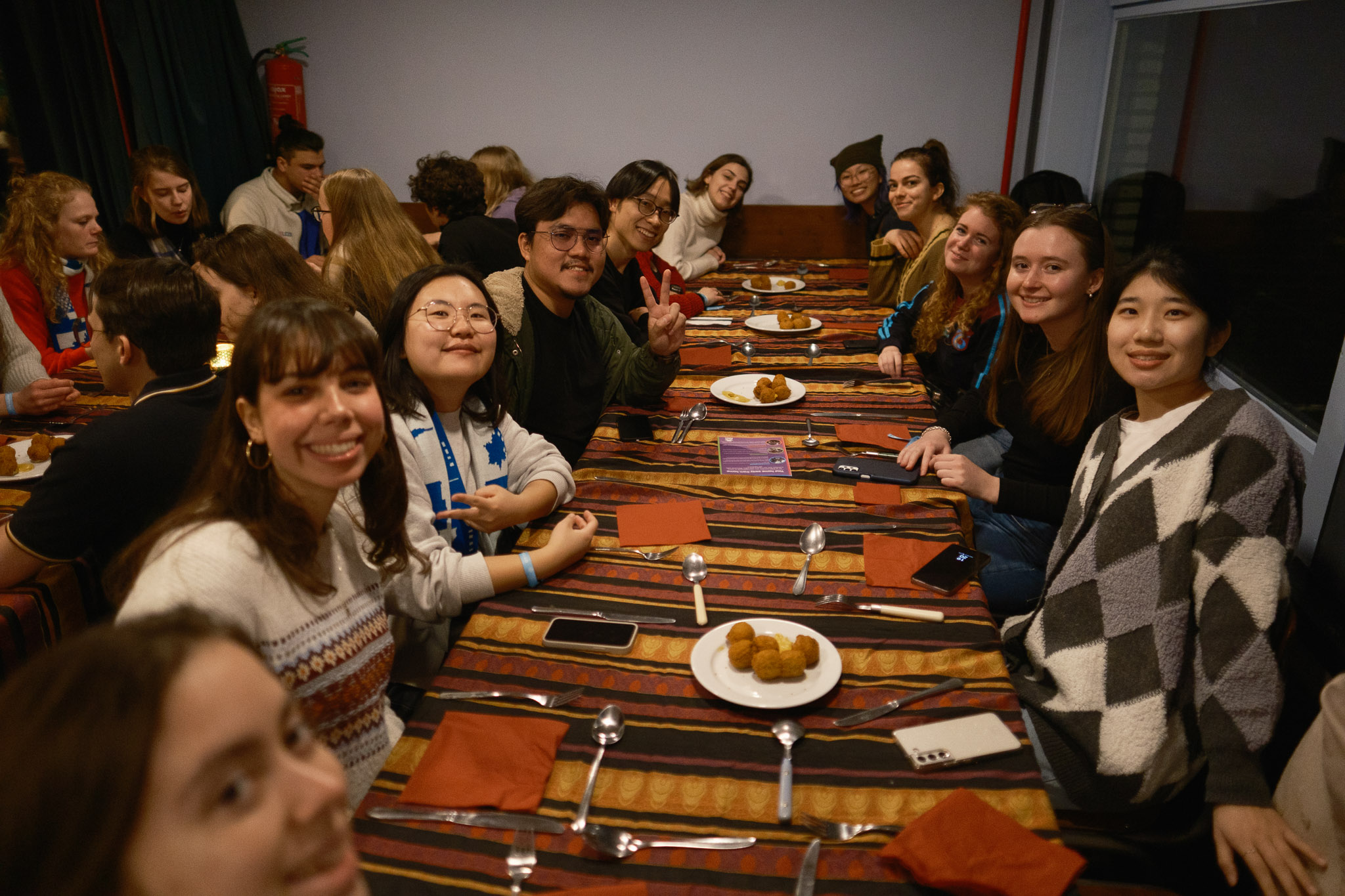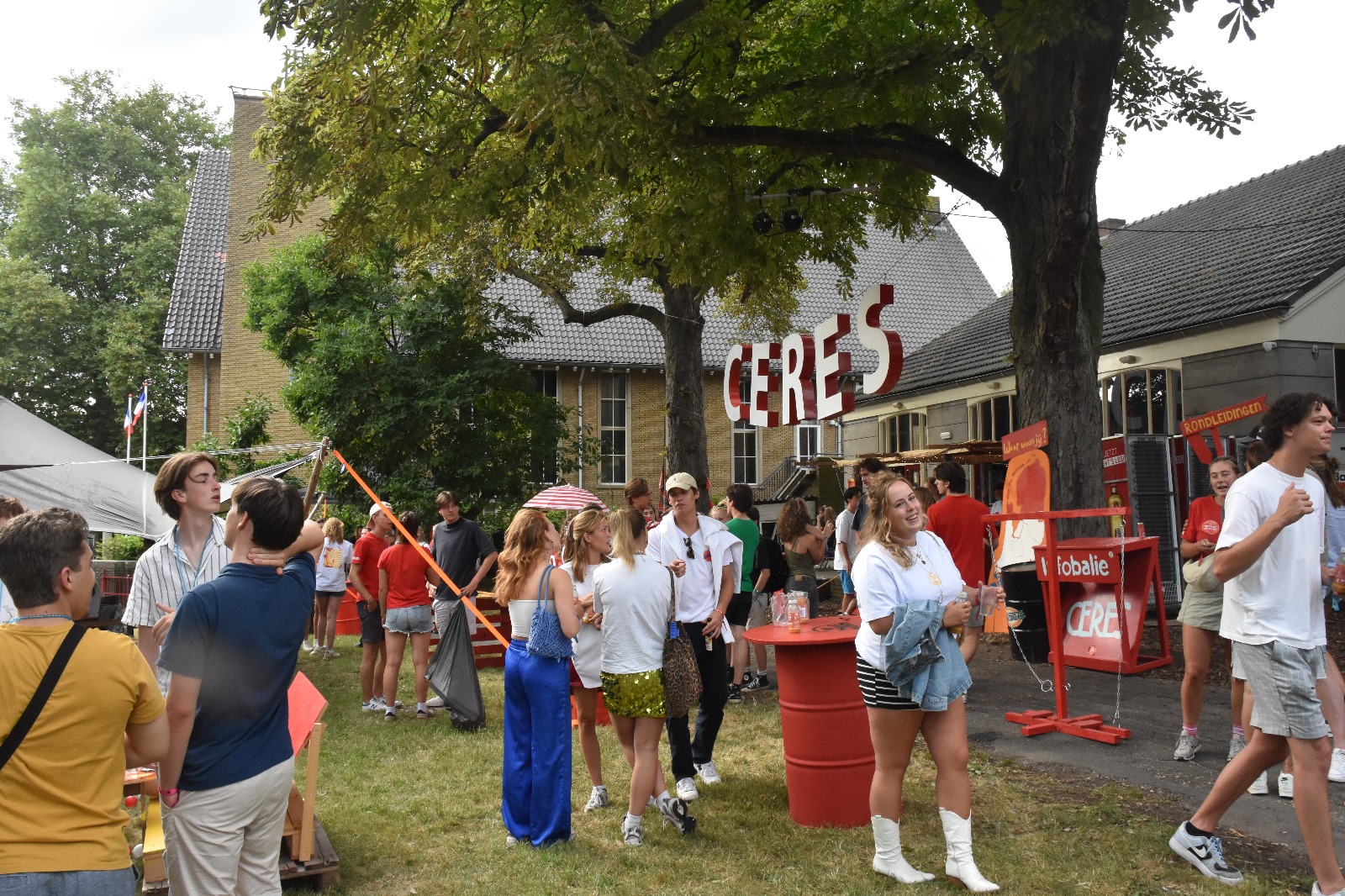In 2000 he was one of the AID freshers and since then he has been involved every year in organizing the event. Sjef Moling has seen the Wageningen introduction week grow from 600 students to 2,500, and the team of volunteers from 30 to 220. ‘I enjoy giving new students a good start to life in Wageningen.’ This is his last year.
‘Do we know yet how the AID freshers will get from the dyke to the street theatre?’ asks Moling.
Student: ‘You’ve got the stilt-walkers, right? Can’t they direct people?’
Moling: ‘It’s a long way from the changing rooms to the dyke and then they have to walk along the dyke on stilts. How about putting up signs instead?’
It is the end of May, in a room somewhere in Forum. The students on the AID committee scroll through an Excel file with the details of the introduction week as they present their plans to Sjef Moling and his successor Maartje Kragtwijk. As the students talk about what exactly has been agreed, who has which tasks and what exactly still needs to be arranged, they are constantly interrupted by questions from Moling and Kragtwijk.
‘What is your definition of heat?’ asks Moling when they start discussing the heat plan. ‘Uuhhh,’ is the reply. ‘The crew will need to be clear on that so they know when they have to change all the plans,’ says Moling.
‘Oohh, this meeting,’ sighs one of the students.
From fresher to leader
Moling is currently a safety advisor in the Student Life, Wellbeing & Inclusion team, but a quarter of a century ago he too was a fresher taking part in the AID. Little did he know then that he would become ‘Sjef AID’. What was his own introduction week like?
‘My parents dropped me off at Unitas. Back then, you started the intro week at one of the student societies. I thought: what kind of a world have I ended up in? That week, I cycled to places in Wageningen that I’ve never been able to find since. The band Green Lizard performed in the stadium on Wageningse Berg; someone in my group was a big fan of theirs. It was an amazing week. The next year, 2001, I helped with the organization. It was so much fun that I’ve been involved in it ever since.’
When I started, there were 30 of us organizing AID, and now we have 220 volunteers
In 2005, Moling, then a Biotechnology student, joined the AID committee. When there were not enough people to form a new committee in 2006, the idea was aired of appointing a WUR employee to guarantee continuity in the AID organization. ‘That plan wasn’t implemented immediately,’ says Moling. ‘But when a student on the AID committee in 2010 ended up in hospital because he had too much on his plate, the rector decided a change was needed.’
In 2010, Moling, by now a PhD candidate in Molecular Biology, was appointed AID project manager along with Rolf Marteijn, Nutrition & Health programme director, who had been involved in the AID organization since 1995. They jointly organized the introduction week for five years. ‘We made the whole thing much more professional. Safety, budgets, plans — everything was tightened up a lot. That was much needed as the number of participants had increased from 600 in 2000 to 1,500 in 2009. In 2019, we had as many as 2,500.’
Marteijn stopped in 2015 and his successor didn’t stay long. ‘And they were never replaced,’ says Moling. ‘Since then, I’ve been doing the project management on my own, although Rolf still does a lot for AID.’
Permanently on call
Moling: ‘I’m permanently on call during AID week. If anything happens, they come to me. I can even get rung up in the middle of the night. It’s nice but it’s also tiring.’
There haven’t been any major incidents during all those years, says Moling. ‘Twice, we had an AID fresher suffering a psychosis. That is quite hard to deal with if you happen to be in the same group but fortunately most AID freshers didn’t notice anything.’ The Covid crisis was also an unusual period. ‘The rules were constantly changing, for example on how many people could meet up together. In the end, we were able to organize a few activities such as a sports day, a bike excursion and even a festival with assigned seating.’
Letting go
Moling’s successor Kragtwijk helped out as project manager for the first time in 2024. ‘Maartje was on the AID committee in 2015. She has experience in coaching. I hope too that with her background in marketing [she has worked in the past for Newcraft and Oak in Amsterdam] she will be able to get all the new students taking part in AID. That would be fantastic. At present we have around 90 to 95 per cent taking part.’ Moling also thinks it is time for a fresh take on the organization. ‘When I started, there were 30 of us organizing AID. Now we have 220 volunteers. You want to get the best out of everyone, but that’s not easy with such a large group.’
In August, Moling will be ‘Sjef AID’ for one last time. ‘But Maartje will be in charge; I’ll be following her lead. I’ll be doing technical and safety stuff and making sure she knows whatever she needs to know.’ Each year, it feels magical seeing all the months of preparation come to fruition in that one introduction week, says Moling. ‘I enjoy giving new students a good start to life in Wageningen.’iet ervan om nieuwe studenten een goede start in Wageningen te geven.’
Others on the end of the Moling AID era
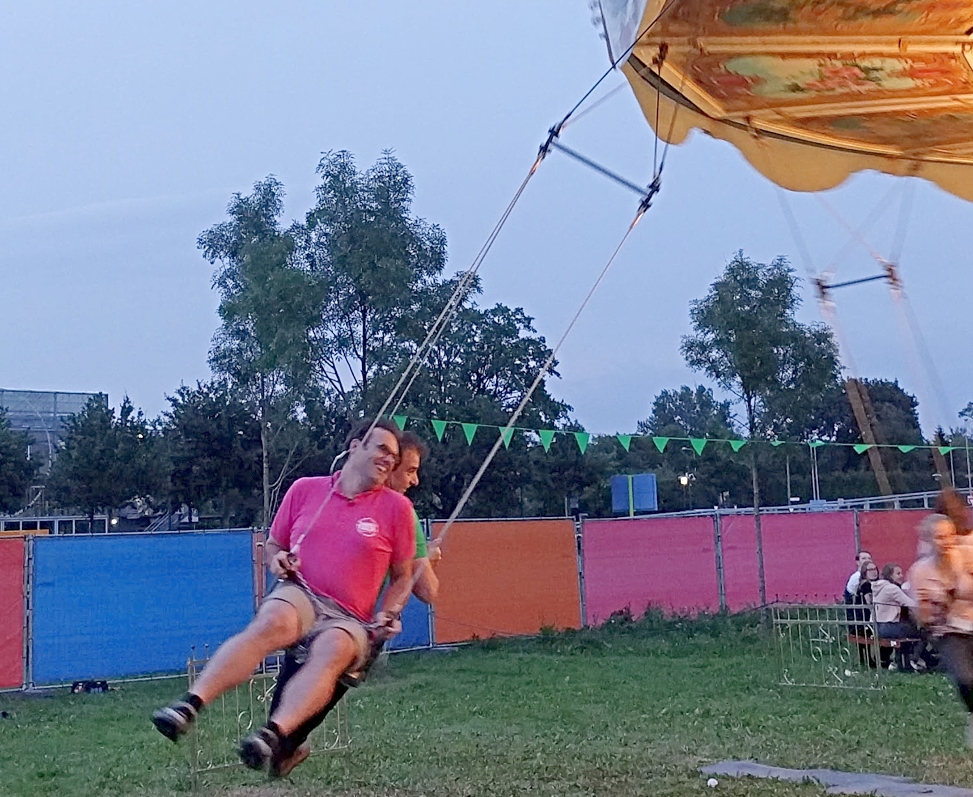
Rolf Marteijn, Nutrition & Health programme director, who has been involved in the AID organization since 1993 (!)
‘Sjef stood out immediately when he joined the AID crew in 2001. He clearly already had experience organizing events and he was quick to take action. The AID event was a lot smaller then. If you happened to need a stage, we would arrange a flat cart and a tent for the performers to get changed in. It was all much more improvised.’
‘As the student numbers grew, it was clear the AID organization needed to become more professional, so in 2010 WUR appointed Sjef and me as project managers. We did that together for five years. Sjef was responsible for safety, among other things. We used to climb the scaffolding without any kind of safety gear but now it’s normal to wear a safety harness, as indeed it should be. Working safely has become standard practice, a change that was much needed.’
‘Sjef is a great advocate of the importance of AID. When Arthur Mol became the rector, Sjef dug out an old poster of him as an AID committee member and framed it. That was a nice gift but was also a way of encouraging him to continue supporting the AID event in his role as rector.’
‘Once the AID week has got started, you often hear Sjef say “wonderful”. If a student makes a suggestion — perhaps we could do something this way — you hear him reply “wonderful” and you’re never quite sure whether he is being serious or slightly sarcastic. Wonderful.’
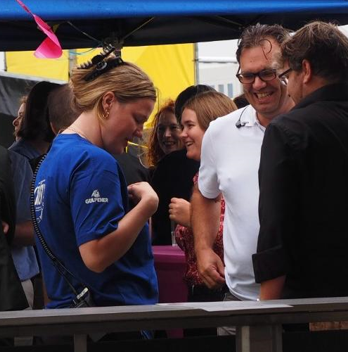
Maartje Kragtwijk, AID project manager
‘What I like about Sjef is that he makes room for everyone to be thrown in the deep end and start swimming. He never passes judgement on whether something is fun or not. If someone else is enthusiastic about it, he gives them every opportunity to organize it, as long as it’s safe and feasible. I noticed that when I was on the AID committee myself in 2015 as a Management, Economics and Consumer Studies student, and I’m seeing it again as a co-worker. Now Sjef will be stopping after this AID week, I hope I will be able to maintain that same attitude.’
‘The 2015 AID was a wet affair: we had 60 hours of rain and had to call off a lot of activities. We had been talking all year about the swing carousel we’d arranged for the final party. But that was the first dry day and we were so focused on making sure everything was perfect for the AID freshers that we completely forgot we’d planned to go on the swing carousel with the entire committee. The swing carousel was back the next year, so Sjef got the previous year’s committee together to make good on our carousel plan. I have never seen Sjef so happy as he was that time we all sat in the carousel.’
‘Over the years, Sjef has grown in line with the AID event and vice versa. AID wouldn’t be the same without Sjef and Sjef wouldn’t be the same without AID. He became the job.’
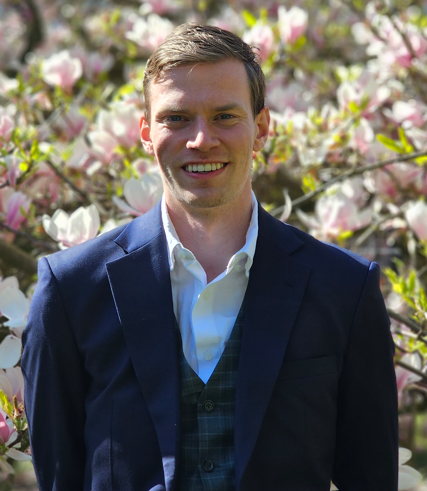
Lars Dohmen (23), Landscape Architecture and Spatial Planning Master’s student and current chair of the AID committee
‘Sjef knows everything, which is nice for us as the AID committee members. If we have what we think is a complex question, Sjef is able to give an immediate answer thanks to his many years of experience.’
‘He has even built a special AID computer system called The Base. You can find everything there from the numbers of participants to how many pub tables you need for a certain event. It has grown to become such a huge and complicated system over the years that he’s the only person who knows how to use it. So now he is stopping as the project manager, we will need to switch to a ‘normal’ system like the ones used for other introduction programmes and festivals.’
‘At the end of every AID, Sjef gets his moment in the limelight. He always looks very uncomfortable then. I don’t think he likes being the centre of attention much.’

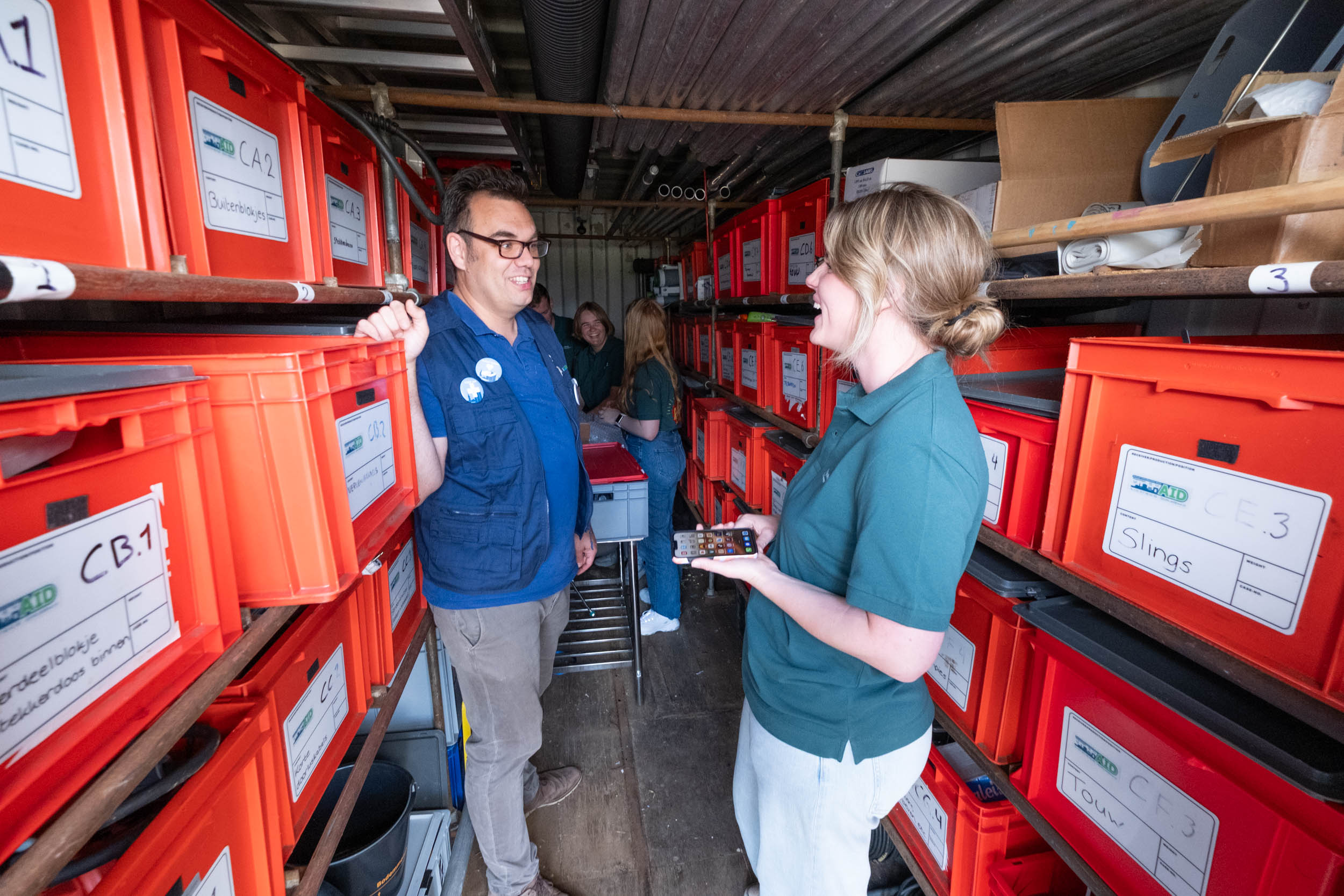 Sjef Moling and Maartje Kragtwijk with the AID board in the background. Photo Guy Ackermans
Sjef Moling and Maartje Kragtwijk with the AID board in the background. Photo Guy Ackermans 